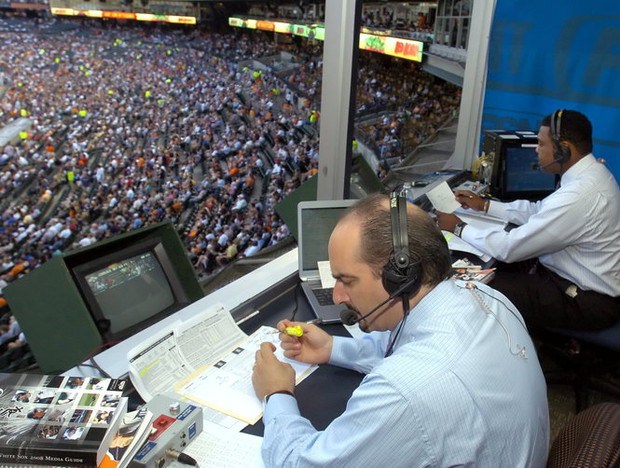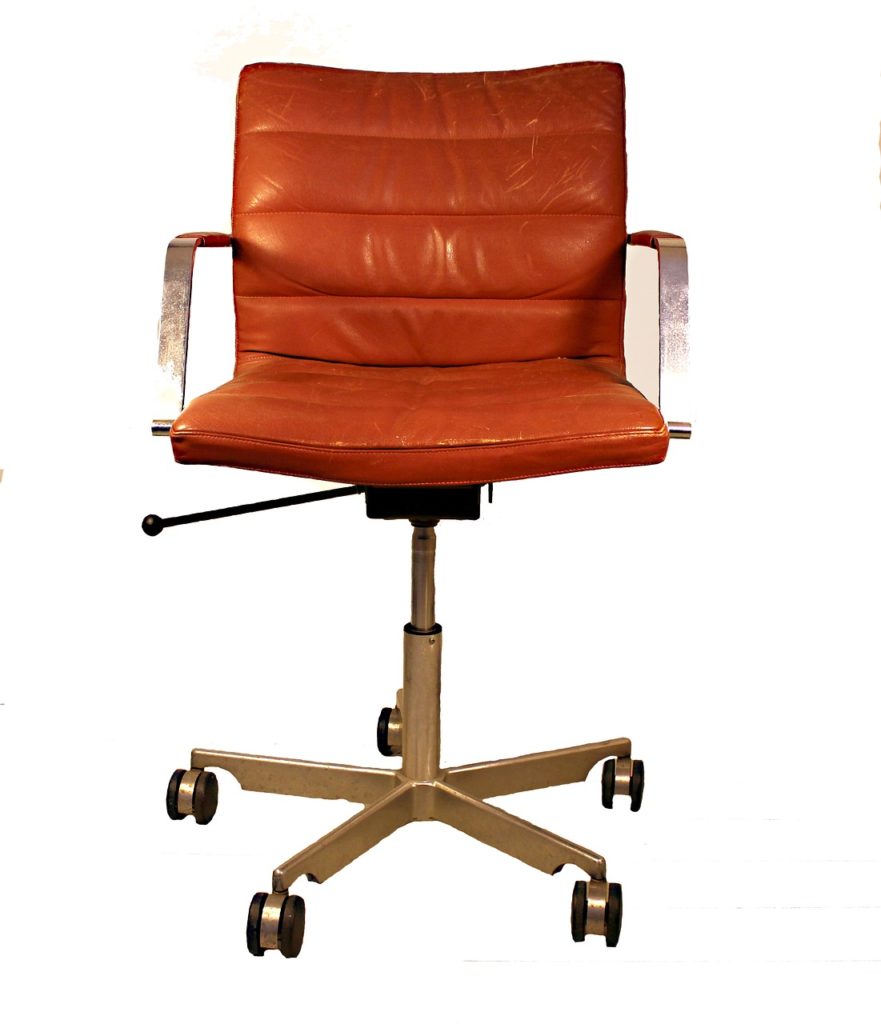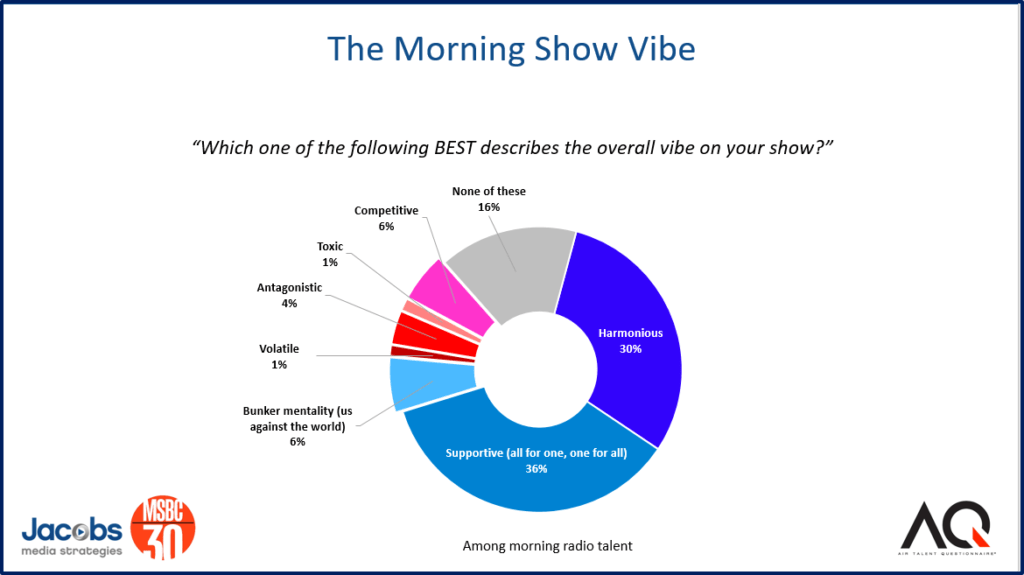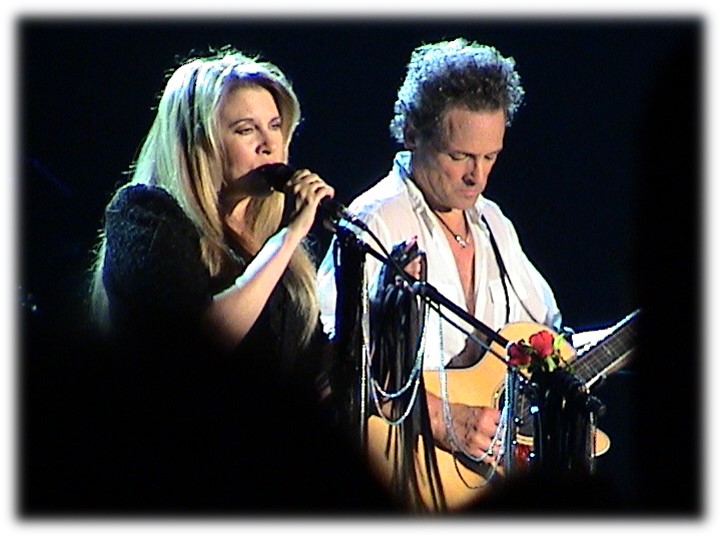
Pull up a chair and let me tell you a media tragedy you never read about in the radio trades – because it is about a television sports broadcasting team in Detroit.
But believe me when I tell you it has resonance for every radio program that involves a duo or a larger team dynamic.
The story is a simple, but sad one. Mario Impemba and Rod Allen have been the TV voices of the Detroit Tigers on Fox Sports Detroit for 17 full seasons. By any standards, that’s a nice run.
Impemba is the talented broadcaster who provides the play-by-play, while Allen is a former Tiger player who has become highly entertaining and popular for his observations and style.
To the unknowing fans, these guys seemed to get along well, becoming first-name broadcasters to rabid Tiger fans. Mario and Rod seemed to be a great combination in the booth, during Tigers seasons where the team excelled and during the past couple years when a rebuilding process has been underway.
It was all going well until late this summer.
That’s when a fight over a chair in the broadcast booth got physical – and blew up throughout Detroit media and especially in sports circles where fans take this stuff seriously.
The end result is that both guys were taken off the air in September with only a couple dozen games to go in the season. And last week, Fox Sports Detroit announced neither broadcaster will be providing the play-by-play for the Tigers anymore.
Done. Over. Finis.
There are only 30 Major League Baseball Teams on this planet, so TV play-by-play gigs are precious jewels. Ask any fledgling sports announcer, and they’ll tell you these plum jobs are hard to come by.
And now Mario and Rod hang up their headphones in the Tigers booth for good.
Over a chair?
Of course, it wasn’t really about a chair, anymore than marriages break up over raised toilet seats, toothpaste caps, or mixing lights with darks. The chair was just a metaphor – the last straw – a symbol of rancor and difficulties that had plagued this duo for years.
a metaphor – the last straw – a symbol of rancor and difficulties that had plagued this duo for years.
The Detroit Free Press’ Anthony Fenech broke the story down yesterday, revealing a relationship that had been apparently festering for a long time. And everyone knew – other broadcasters from around the league, and of course Impemba and Allen’s bosses at Fox Sports Detroit.
Fenech reports there was a serious argument a decade or so ago. And as one FSD employee was quoted, “Nothing was done about it the first time. Nothing was done about it this time.”
We’ve all been there – whether you’re on the air, the program director, or the station manager. In the case of these woeful Tiger broadcasters, being confined in a small space for 160+ baseball games with someone you dislike must be intolerable. The fact both guys were able to play through their disdain for one another is a tribute to their professionalism.
Until it wasn’t.
It’s why rock bands break up. All those hours in tour busses, hanging out in dressing rooms, and in studios can take their toll, especially on personalities who are volatile to begin with.
Speaking of which, Lindsey Buckingham announced yesterday he’s suing the band brand he helped build – Fleetwood Mac. He says he was ousted because band-mate Stevie Nicks never “wanted to share the stage” with him again. The offensive act that did Buckingham in? He reportedly smirked at Nicks during a speech she was making.
Over a smirk?
We’re talking about a feud between two musicians who joined Fleetwood Mac as a couple – more than 40 years ago. You can only imagine the bad blood that’s been brewing over all these decades.
Morning and ensemble shows are the same way – people working together day in and day out in a small space, forced to get along with each other, and play nicely with the other kids on the show.
Most shows get along well – or at least have figured out a way to focus on the greater good and not get too caught up in the minutia. But as we learned in this year’s AQ project – radio’s first talent on talent research study – many shows are at odds with one another – or with management.
Our sample contained nearly 500 members of morning shows, and when we asked them about the vibe in the studio, here’s what they told us:

So, the good news is that two-thirds of our morning talent report the room atmosphere is somewhere between hunky dory and supportive. But a closer look at the chart reveals turbulence of one kind or another for nearly one-fifth. Many agreed that words like “toxic,” “antagonistic,” and “volatile” describe the vibe on their shows. Other note that it can be “competitive” in the studio or the show is going at it with station management.
That’s a lot angst across the spectrum of radio shows, markets, and companies. But I bet if you’ve served time at a handful of radio stations in your career, you’ve seen these erosive conditions before. Perhaps you’ve played a role in the mayhem or been tasked with trying to address and mend it. When a successful show is going at with each other or the corner office, it can be scary – especially given how much rides on the success of the franchises.
Many years ago, we signed a great consulting deal with a very prominent rock station. I was excited about the prospects of working with this team on music, marketing, promotion, events, and branding. But when I showed up for my first market visit, I was informed the relationship between the two stars on the morning show had escalated to toxic proportions. Over time, these guys couldn’t sit in the same room with one another. Simple facial expressions had become symbolic of the hatred that had been allowed to develop over years of turning the other way.
 I spent more than two years as the station social worker, sitting down with these problem children for hours at a time. And never once did we have the ability to talk about new bits, events, and the other things that can turn a really great show into an iconic one. That’s because we were too busy talking about things like chairs.
I spent more than two years as the station social worker, sitting down with these problem children for hours at a time. And never once did we have the ability to talk about new bits, events, and the other things that can turn a really great show into an iconic one. That’s because we were too busy talking about things like chairs.
Eventually, station management had seen enough, opting to rid themselves of the problem, much like the executives at Fox Sports Detroit. While the station fortunately found a fabulous replacement (who reportedly get along with one another), the two troubled talents never excelled in the radio business again. It’s sad because they were each immensely talented, and complemented each other well.
No doubt, Mario and Rod’s bosses were consumed by the brouhaha going on between their two famous play-by-play guys. And yet, they never truly faced up to it, much less solved it.
Some relationships can’t be saved. But turning the other way and hoping an organic solution magically happens isn’t a sound strategy. It rarely works.
Dealing with these issues head-on – as painful as they may be – and getting talent help, whether it’s a “marriage counselor,” a qualified coach, rehab, or something else is an obligation station management has to the company, not to mention the air personalities themselves.
We’ve all seen the signs when at-work issues are allowed to erupt, more and more turning to violence. No one got hurt in the Mario and Rod melee, but there has been collateral damage to both the network and the team – not to mention both personalities. Thousands of kids have been hurt by this episode, having to deal with their idols fighting each other after a baseball game. And the altercation has no doubt resulted in a loss of revenue from advertisers looking for any excuse to cancel their schedules in back to back seasons where the Tigers have lost 98 games each year.
It’s never about a chair. But oftentimes, that’s the catalyst that leads to the demise of an otherwise successful entertainment team. Balancing and soothing everyone’s ego is a tough task. So is dealing with the problems in a straightforward way.
Talent is the lifeblood of the media industry.
Learning how to manage is may be the ultimate programming skill.
Just watch the chairs and the smirks.
- What To Do If Your Radio Station Goes Through A Midlife Crisis - April 25, 2025
- A 2020 Lesson?It Could All Be Gone In A Flash - April 24, 2025
- How AI Can Give Radio Personalities More…PERSONALITY - April 23, 2025




This is the central issue, isn’t it, Fred? What is the relationship between the cast members. How do they build trust with one another off-the-air? How do they resolve conflict when it happens (because it always happens in any relationship). How do they communicate with one another? Do they care about each other as people? More than words, but actions.
When I start working with a show, this is all I talk about. I want to know what the tenets are of the team’s relationship. What’s the team all about, why are they together, how do they nurture each other personally and sustain the necessary communication so that when they do disagree, they can land back at the same spot – trust, respect, caring, and liking one another. Every great show I work with has these values as part of their team. They work on it all the time.
Years ago when I partnered with Kevin Silva at WRDU, Raleigh he sat me down to have this conversation. He asked where do we want to be with each other when the bad times happen (because they do). He told me he didn’t want to have success and make good money but hate being in the same room with someone to do it. He didn’t want to partner up not knowing this, fearful it’d become a ticking time bomb.
Listeners felt that relationship, which I believe fueled our chemistry and the success of the show. At the time, I thought he was an alien wanting to have this conversation. But he was (is) ten years older than me so he brought a maturity into the relationship I didn’t have back then. And when we disagreed (because we did, as all teams do), three guesses what we did. We thrived because of that conversation – we kept our word with each other. And I received an amazing education about relationships at a critical early moment of my career that I use every day as I coach shows.
Kevin and I haven’t been partners for 20 years, we’re still friends, he gets amazing credit for teaching me this, and I love him because he made us figure that out at the beginning.
I’ve long believed that some forward thinking radio company will one day hire a licensed therapist who’ll travel the country helping shows work on their relationships so the talent coach and programmers can focus on the other things that move the needle, creating great radio.
Steve, I thought of you when I wronte this post. You can’t handle the daily practice of a show unless all these issues are addressed (and resolved) up front. Oftentimes, programmers think the key is putting the team together. Of course, that’s the central challenge, but establishing boundaries, lanes, and communications between the players are what creates long-lasting relationships and winning shows.
I think of the great shows I’ve had the pleasure and honor to work with over the years, and the ones that have been truly sucessful and stood the test of the time also have less “drama.” That takes a lot of work.
I think about the Showtime show “Billions” where all these high-powered traders and deal-makers have a therapist on staff who they can visit at any time to vent, unload, and problem-solve. If there are corporate attorneys, why not a corporate “marriage counselor?”
Thanks for the conmment, Steve, and for adding to an important conversation.
I love your company therapist idea, Steve. Not only for the morning team. In my experience, a major contributor to discord among show members is a toxic relationship with management and/or THEIR chosen programming consultant. You may remember just such a situation you and I experienced at the beginning your coaching career :-). For your idea to work, the therapist needs to be available to and have the authority and responsibility to work with everyone who’s contributing to the conflict. No sacred cows.
I think Steve’s on to something, Bill. Thanks for the comment.
A great column, Fred. Truly one of the real challenges of managing. The Rolling Stones are truly the greatest band ever. Not because they have made the best songs or based on sales, tours, etc, but simply because they have stuck together when we know they want to kill one another.
With one show I had them assume on-air identities and off-air identities. They greeting one another at the studio door with “Hello partner” and carried none of the baggage over the line. Once out of the studio it was another matter. Held together for many years at least.
It’s a tough task, and you’re right about the handful of bands like the Stones that have somehow survived decades of unimaginable bullshit. It is heartbreaking to see a band break up that you love, just as it is for young fans of Mario & Rod’s to understand what could possibly have gone wrong. Thanks, Andy.